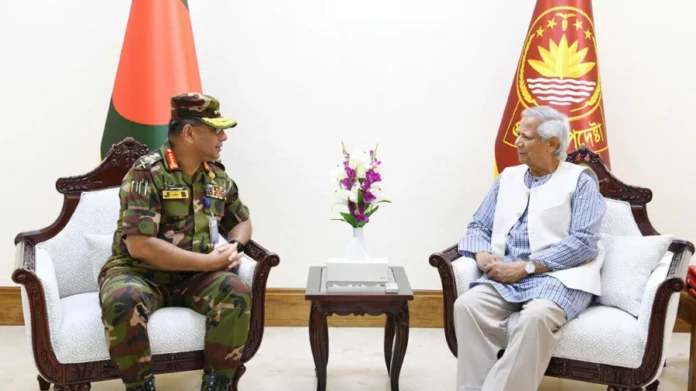Bangladesh’s Army Chief, General Waker-uz-Zaman, has vowed full support for Nobel laureate Muhammad Yunus’ interim government, pledging to back its reform efforts following the ouster of Prime Minister Sheikh Hasina. In an interview with Reuters, Zaman affirmed his commitment to helping Yunus achieve key reforms and steer the country toward elections within 18 months.
Hasina, who resigned after 15 years in power amid mass student-led protests, fled to India in early August. The military, under Zaman’s command, remained neutral during the unrest, marking a significant moment in the country’s political crisis. Zaman, who assumed his position shortly before Hasina’s departure, emphasized the army’s role in maintaining stability and distancing itself from politics.
The interim government, led by Yunus, has pledged to implement essential reforms in the judiciary, police, and financial institutions to create the foundation for free and fair elections. Zaman noted that Yunus and he meet weekly and share a strong working relationship, which he believes is key to restoring order and achieving long-term reforms.
Zaman also highlighted the need for patience as the country transitions to democracy. He estimated that reforms and elections could take between 12 to 18 months, aligning with Yunus’ roadmap. Despite calls from major political parties for elections within three months, Zaman stressed that a more extended timeframe is necessary to ensure lasting stability.
The army has assumed law enforcement duties in some areas, given the disarray in the police force following the political turmoil. Zaman also revealed that the military is investigating allegations of wrongdoing by its personnel during Hasina’s rule, with some soldiers already facing disciplinary action.
Looking ahead, Zaman advocated for constitutional reforms to ensure that the military is never used for political purposes. He suggested a potential restructuring of the power balance between the president and prime minister to place the armed forces under the direct control of the president.



